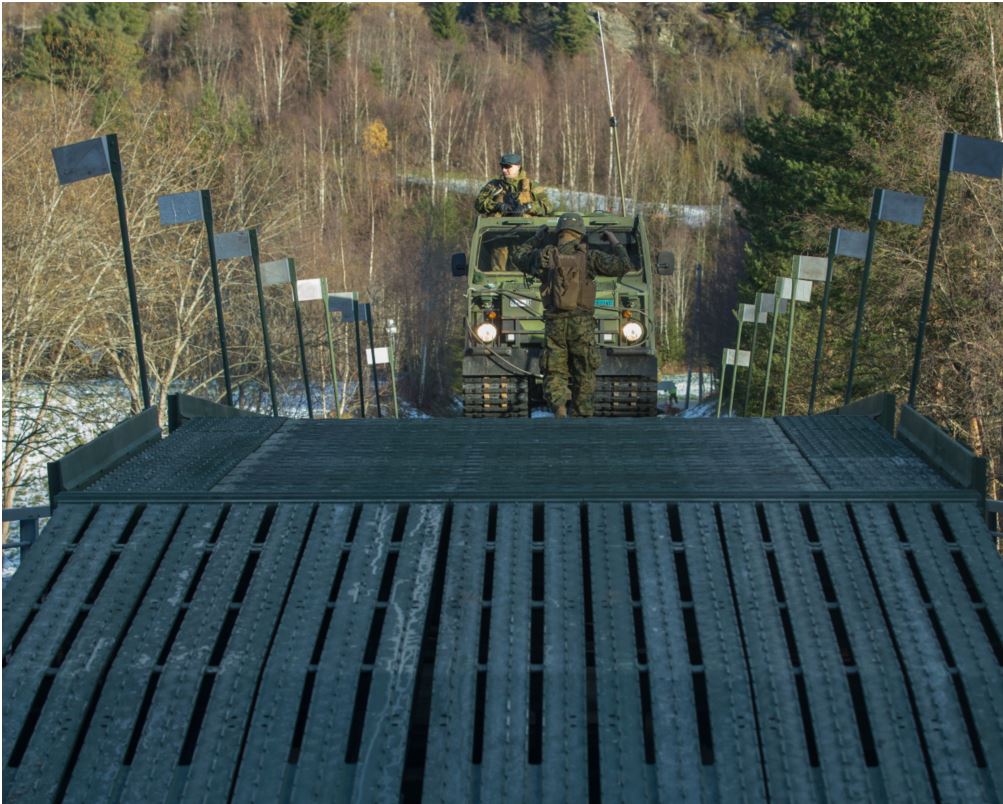U.S. Marines and U.S. Navy Seabees jointly deployed a WFEL Medium Girder Bridge (MGB) in Norway recently

The troops demonstrated their bridge-building skills in a constricted workspace in an extremely harsh weather environment and tested their ability to ensure mobility of forces during the scenario of an existing bridge over a gap becoming structurally unsound due to battle damage and unsafe for military vehicles to cross. The need for the new bridge was, therefore, critical.
Almost 100 U.S. Marine Light Armoured Vehicles and Norwegian Bandvagns (all-terrain tracked carrier vehicles) crossed the bridge immediately after its completion.
Gap crossing is a critical skill that engineers need to accomplish; the military acknowledge that being able to rapidly assess and breach a gap takes a great deal of planning and co-ordination - and is always a challenge.
In recent years, most US Forces operations have been carried out in warm or desert environments, eg Iraqi Freedom and Enduring Freedom. Recently however, the focus has moved such, there has now become a priority for training between NATO allies in areas where temperatures often drop well below freezing.
The overall exercise, including bridge-building construction, helped to test and validate warfighting capabilities across the warfighting domains, better preparing them to help support NATO Allies and partners.
To assist with the logistics challenge, a strategic pre-positioning programme was called upon. Since 1981, equipment and supplies had been pre-positioned in Norway to enable a quicker response by the military in times of crisis. The U.S. Marine Corps Prepositioning Program has been used to support logistics for combat operations such as the war in Iraq and, during Trident Juncture 18, the U.S. Marines once again utilized this concept by withdrawing equipment from caves to build the WFEL Medium Girder Bridge.
Around 50,000 participants from some 30 NATO and partner countries took part in exercise Trident Juncture 2018, the largest in a series of long-planned exercises to ensure that NATO forces are trained, able to operate seamlessly together and ready to respond to any threat, from any direction.
The exercise took place in central and eastern Norway and surrounding areas of the North Atlantic and Baltic Sea, including Iceland and the airspace of Finland and Sweden. Air, land, maritime, special operation forces and amphibious forces participated. Around 250 aircraft, 65 vessels and up to 10,000 vehicles were used during the exercise, including the British Army which deployed some 1600 soldiers and over 1000 vehicles and equipment.

